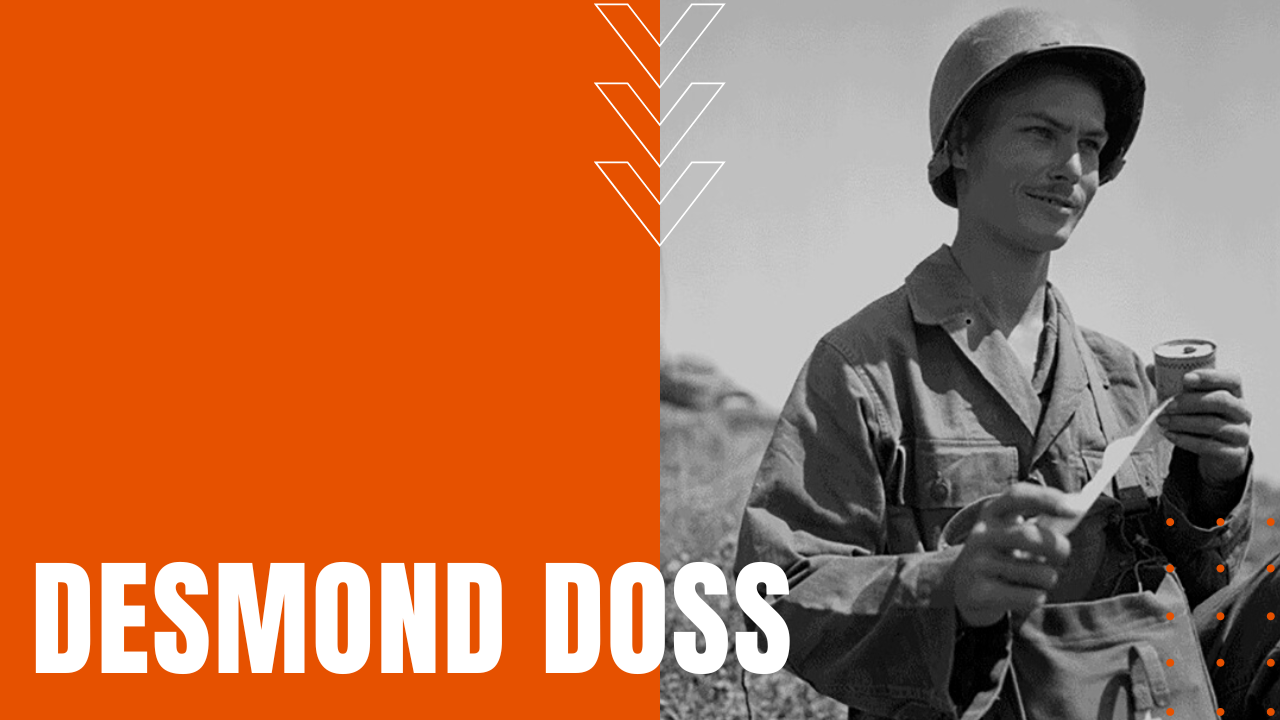Desmond Doss: Standout Hero at Hacksaw Ridge

The Conscientious Cooperator
Born in 1919 in Lynchburg Virginia, Desmond T. Doss was a “conscientious cooperator,” as he later described himself, and while he could have applied for a deferment from military service based on his religious refusal to bear arms, he joined the army despite death threats and near-constant harassment during boot camp, both from his enlisted compatriots up to his commanding officers.
Refusing to buckle under pressure, Doss shipped out for the Pacific in 1944 as a medic with the 307th Infantry Regiment, fighting with his unit first in Guam, where he was awarded a Bronze Star for valor after he treated wounded men despite extreme jeopardy to his life. He earned a second Bronze Star for his unwavering performance during firefights on Leyte, where his courage under fire saved countless lives despite heavy and intense mortar fire, grenade strikes and machine gun fire.
Battle of Okinawa
By the time Doss and his unit moved to Okinawa, any reservations by his fellow soldiers about the medic’s courage under fire had turned to deep respect, which only intensified on May the 2nd, 1945, when American soldiers attacked Japanese fortifications atop the 400-foot-tall Hacksaw Ridge during the Battle of Okinawa.
At the top of the cliff face stood a 35-foot granite overhang, forcing men of the 307th to climb cargo netting to reach entrenched Japanese forces above.
Men dropped like flies under a hail of Japanese machine gun fire, and over the next several days of dogged fighting, Doss put himself in continuous mortal danger in his attempts to aid his fallen comrades.
On May the 5th, the Japanese intensified their efforts to repel American forces, and when Doss’ commanding officer ordered a retreat, he refused to leave an estimated 75 wounded men behind.
The Hero of Hacksaw Ridge
Too injured to retreat on their own, Doss rescued all 75 men trapped at the top of Hacksaw Ridge, lowering them down with a rope until all men were brought to safety and much-needed medical care.
Later that same month, Doss was wounded several times by grenade fragments and a sniper’s bullet through an arm, yet despite the severity of his injuries, he refused medical attention until those more seriously wounded could be tended to.
Due to the extent of his injuries, Doss was evacuated in late May, returning home to Virginia where he spent years recovering from his wounds, as well as tuberculosis, which he had contracted on Leyte. On October 12th, 1945, President Harry S. Truman presented Doss with the Medal of Honor in a White House ceremony, where Truman said after awarding the medal, that “I consider this a greater honor than being president.”
The only conscientious objector to receive America’s highest combat medal, Doss later said that he won the medal “because I kept the Golden Rule that we read in Matthew 7:12, that ‘All things whatsoever ye would that men should do to you, do ye even so to them,’” making Desmond T. Doss, a standout hero amongst a generation of standout American fighting men.
